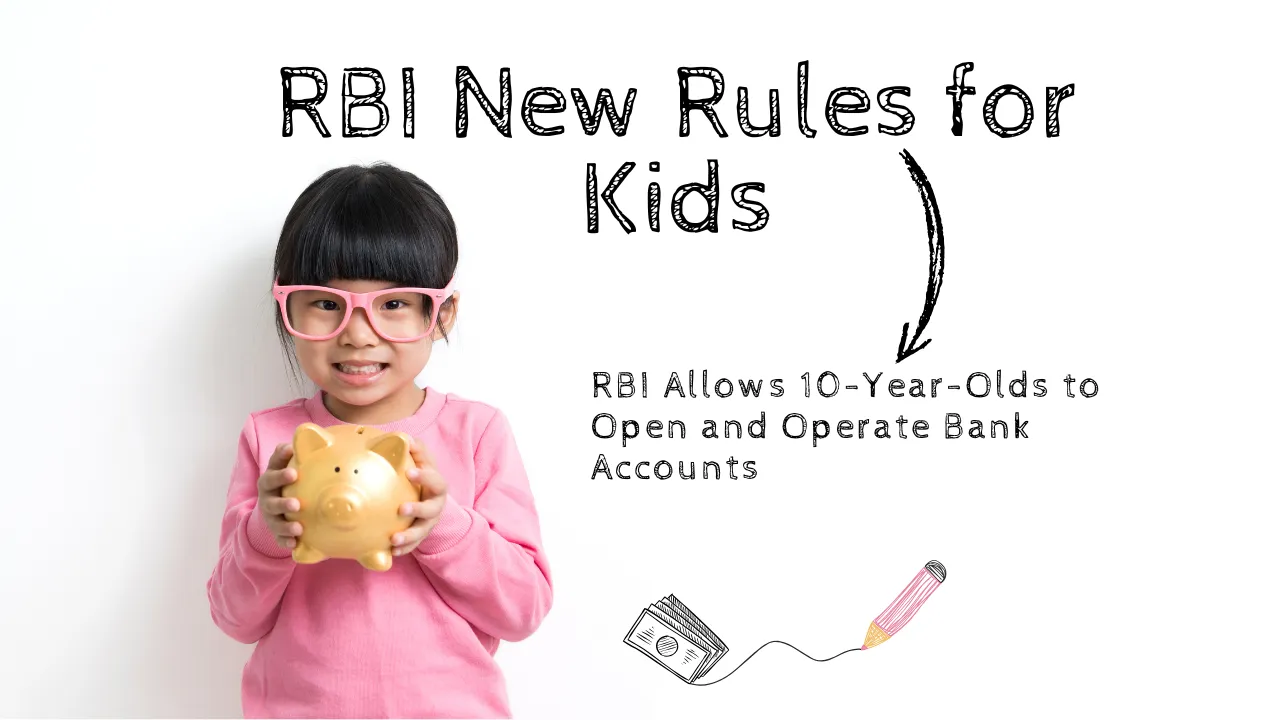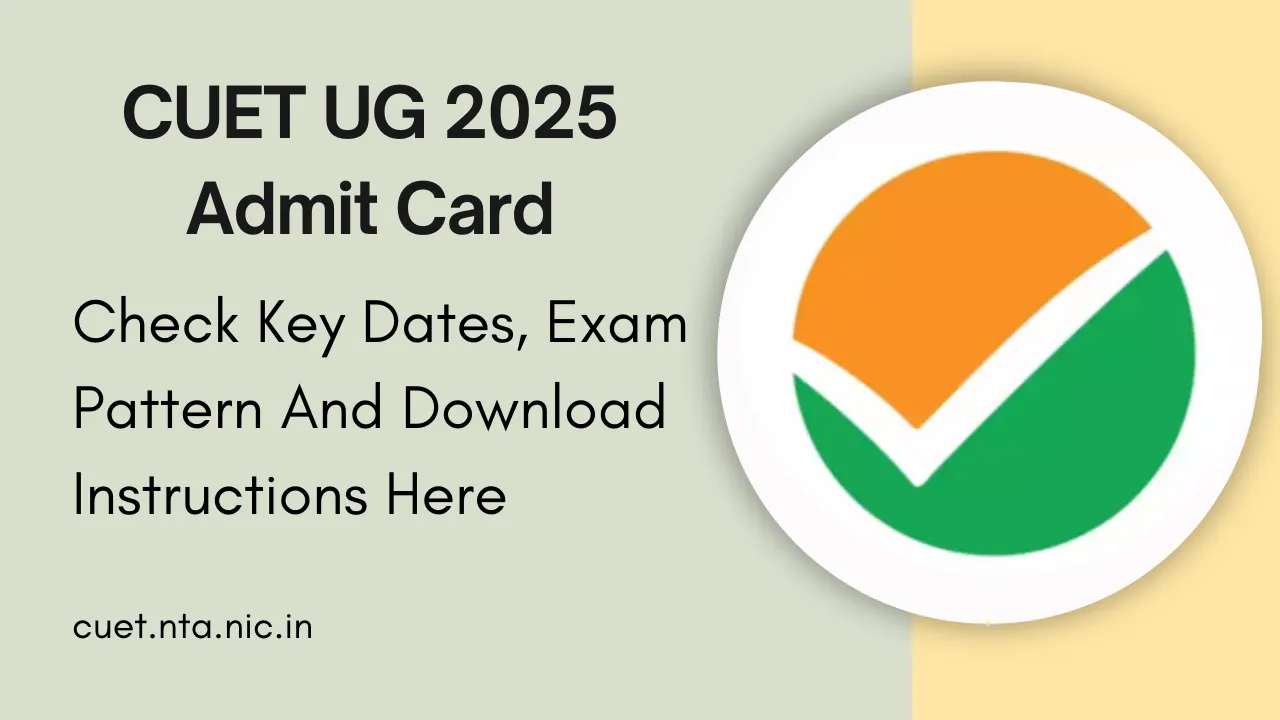RBI New Rules for Kids: In a progressive move to promote financial literacy among young Indians, the Reserve Bank of India (RBI) has introduced new guidelines that allow children as young as 10 years old to open and operate their own bank accounts. This step is aimed at fostering financial independence from an early age while ensuring that necessary safeguards are in place. As digital banking becomes a part of daily life, these rules are designed to help kids learn responsible money management in a controlled environment.
The RBI New Rules for Kids mark a significant shift in how minors can engage with banking services. Children now have the opportunity to manage savings accounts independently once they turn 10, with banks offering tailored services based on age and responsibility. These guidelines balance freedom with protection, ensuring young account holders gain financial experience without unnecessary risks.
RBI New Rules for Kids Saving Account
The RBI New Rules for Kids simplify and modernize the process of banking for minors. Parents, guardians, and children should understand these updated rules to take full advantage of the opportunities while respecting the limits set for safety and financial discipline.
Overview Table: RBI New Rules for Kids
| Aspect | Details |
| Minimum Age to Operate | 10 years (independently) |
| Account Opening | Any age with guardian supervision |
| Digital Services | Allowed for minors under 18, based on bank’s risk assessment |
| Overdraft Facility | Not permitted |
| Transition at 18 | New instructions and signatures required |
| KYC & Due Diligence | Mandatory for all minor accounts |
| Applicable Services | Debit cards, online banking (optional, based on bank policy) |
Eligibility for Account Opening
Under the new RBI directive, minors of any age can have a savings or term deposit account, but accounts for children under 10 must be managed by a parent or legal guardian. Mothers are recognized as natural guardians, making it easier for families to set up accounts for their children from birth.
This gives parents a head start in building savings for their child’s future, whether it’s for education, marriage, or general financial security.
Being Independent at Age 10 Years or Older
Once a child turns 10, they are allowed to operate their bank account independently, within limits set by the bank. These limits will reflect the bank’s internal risk guidelines, ensuring that young account holders are not exposed to financial risks they cannot manage.
Banks are required to clearly explain the terms and conditions to minors in a way they can understand, promoting responsible banking habits from a young age.
Banking Services Are Accepted (But Not Required)
Banks may choose to offer additional services such as debit cards, internet banking, and cheque books to minors. However, these services are optional and depend on the bank’s assessment of risk and suitability for young customers.
This flexibility allows banks to introduce tiered services, giving more features as children grow older and demonstrate financial responsibility.
At 18, What Takes Place?
When a minor turns 18, their account must be transitioned to an adult account. Banks will request fresh operating instructions, updated signatures, and verification of account balances. If the account was previously managed by a guardian, the balance and control will transfer fully to the now-adult account holder.
This smooth transition process ensures that young adults continue to have uninterrupted access to their finances.
Adhering Strictly: Absence of Overdrafts
One key safeguard in the RBI New Rules for Kids is the prohibition of overdrafts. Minors cannot operate accounts with negative balances, nor can they access credit facilities. This rule ensures that children learn basic financial principles like saving, budgeting, and living within their means without exposure to debt.
KYC and Due Diligence Regulations Apply
Even though these accounts are for minors, banks must still follow strict Know Your Customer (KYC) and Customer Due Diligence (CDD) procedures. Banks are responsible for monitoring accounts as minors grow, updating records regularly to ensure compliance with regulations.
This ensures that while children are given financial freedom, banks remain vigilant against misuse or financial misconduct.
Why This Is Important
India has a large youth population, and early exposure to banking can promote strong financial habits that last a lifetime. The RBI New Rules for Kids encourage saving, budgeting, and financial literacy from a young age. With proper guidance, children can learn how to manage money responsibly, which is crucial in today’s digital economy.
For banks, this is also an opportunity to innovate by creating kid-friendly banking solutions, such as educational apps, gamified saving tools, and simplified digital banking platforms.
FAQs
Can a 7-year-old have a bank account?
Yes, but it must be managed by a parent or guardian.
What services can a 10-year-old access?
Depending on the bank’s policy, they may get limited digital services like a debit card or online banking.
Is overdraft allowed for minors?
No, overdrafts and credit facilities are strictly prohibited.
What happens when a child turns 18?
The account transitions to a standard adult account with updated instructions and verification.
Do minors need to complete KYC?
Yes, KYC is mandatory, with guardians providing necessary documents for younger children.
Final Thought
The RBI New Rules for Kids are a forward-thinking step toward building a financially aware generation. By allowing minors to open and operate bank accounts under safe conditions, the RBI is promoting independence, responsibility, and financial literacy. Parents should take advantage of these new guidelines to teach their children about money management early on. If you found this guide helpful, share it with other parents or educators, and encourage young ones to start their financial journey today.











